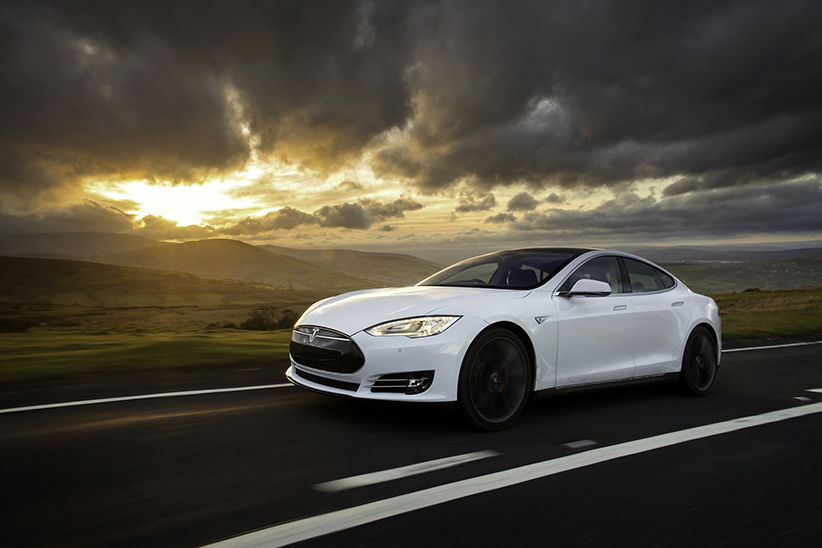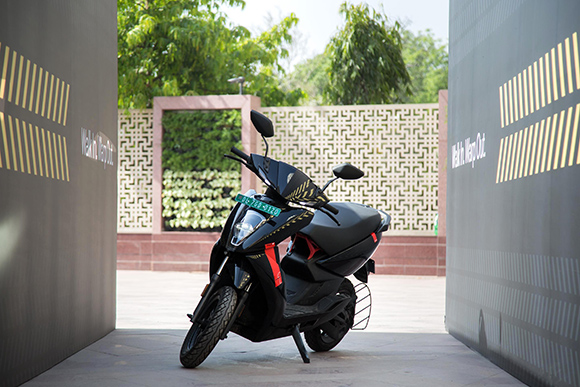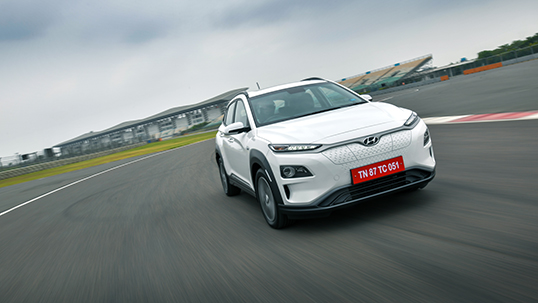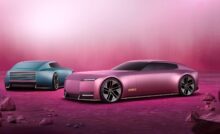Charging A Greener Future


The fashion industry is counted among the most polluting industries in the world. Not only is our industry responsible for 8% to 10% of global carbon emissions but fabric wastes piling up in landfills, chemicals polluting water bodies, and enormous water and energy consumptions across the industry are also major concerns. Pawan Gupta, CEO and Co-Founder at Fashinza, a fashion-tech platform for apparel industry, explains about five technological developments which would help minimize the pollution and be impactful in the long run.


There can be no doubt that electric vehicles (EVs) are the future. Fun to drive, low maintenance and a lower operating cost ensures that the whole formula sounds too good to be true. But what about factors like range anxiety? Well, the good news is that the range of most EVs are going up all the time and today most EVs are easily capable of doing 200 kilometres between charges, thus making them ideal city runabouts. Moreover, prices are coming down too and mechanisms are coming into place to ensure that battery recycling happens properly. Today, on World Environment Day, what more would you want? Or rather as mahatma Gandhi once famously said, “be the change that you want to see” and at no time is this more appropriate than now, when we all need to commit to switch to EVs.


EVs are not merely about the three-wheeler rickshaws you see at most metro stations. Though undeniably they do provide a certain last mile connectivity, EVs today are very well entrenched in our eco system. Of course, one of the biggest roadblocks has been the absence of a public charging infrastructure, but that is something the Government is trying to resolve with utmost speeds. Recently, in response to a question raised in the Rajya Sabha, Union Minister of Power and New & Renewable Energy Mr. R. K. Singh has detailed initiatives of the central government, specifically the Power Ministry and the progress made so far – reporting a total of 970 installed public stations in the country. This is in line with the Government of India’s vision to have an EV charging station every 25 kilometres in the country.
One of the other biggest hurdles also has been the entry point. Currently, good two-wheelers cost upwards of INR 30,000 and four-wheelers INR 700,000. That is a lot of money to be invested in a new, yet unproven concept but the good news is that prices are coming down all the time, and the most expensive thing in the whole set up, the battery is getting cheaper. Also new technologies like Aluminium Graphene look promising and the cost may go down a lot in the future. There are currently 162 different models of electric 2-wheelers for sale, with a starting price of around INR 30,000 and going upto INR 1,46,000. In cars, prices range from INR 9,58,000 to INR 1,12,00,000/-.
Energy Efficient Services Limited (EESL) a Government of India body set to adopt eco-friendly practices is doing a good job for utilising EVs in the Government. Saurabh Kumar, Executive Vice Chairperson, EESL said, “A shift to EVs, facilitated by our e-mobility programme will reduce dependence on oil imports and will greatly enhance the energy security of the country and will also lead to reduction in GHG emissions from the transport sector. Furthermore, we’re also working on rapid establishment of EV charging stations, which will give a fillip to the electric vehicle sales, going forward.” His views were echoed by Puneet Anand, Senior GM & Group Head – Marketing, Hyundai Motor India Ltd. Who said, “Hyundai KONA Electric is The NEW NORMAL. We have always been a Brand with a Cause and Customer Centric organization striving to excel with Innovative Mobility Solutions by exploring newer avenues and possibilities. With KONA Electric, Hyundai will give a New Dimension to Indian Automobile Industry Embarking an Era of Cleaner, Greener and Sustainable Mobility. There have been numerous myths and ambiguities about electric vehicles and their ownership among Indian customers – the campaign ‘Do You Know?’ is an effort to dispel the myths and share the facts about EVs among customers.”
It is indeed very clear that the future of green mobility is EVs in sustainable transportation and today, on World Environment Day, this is just what we need.
More from our site
Recent Posts
The PEAKLIFE Regatta 2025
From fashion designer Varoin Marwah’s Coastal Calm SS '25 splash show to a thrilling nautical spin on the sea, it was a magical weekend in Mumbai
From fashion designer Varoin Marwah’s Coastal Calm SS '25 splash show to a thrilling nautical…
Inside Louisiana’s Biggest Festival: 10 Things You Didn’t Know About Mardi Gras
More than a party, Mardi Gras is a cultural phenomenon!
More than a party, Mardi Gras is a cultural phenomenon!
Design Your Dream Home With These Expert Tips
A home that’s stylish, cosy, and truly yours!
A home that’s stylish, cosy, and truly yours!
Luxury in Fiji: Indulge in Paradise
From private island resorts to lavish overwater bungalows, this South Pacific paradise seamlessly blends indulgence with natural beauty
From private island resorts to lavish overwater bungalows, this South Pacific paradise seamlessly blends indulgence…
A Traveller’s Quest: Soorahi
This premium blend whisky brand aims to reflect a spirit of exploration and evolution in India’s alco-beverage landscape
This premium blend whisky brand aims to reflect a spirit of exploration and evolution in…
What’s Buzzing: Fashion, Tech, and Travel Picks You Can’t Miss!
From star-studded fashion collaborations to luxurious getaways and cutting-edge tech, here’s everything making waves this week
From star-studded fashion collaborations to luxurious getaways and cutting-edge tech, here’s everything making waves this…

